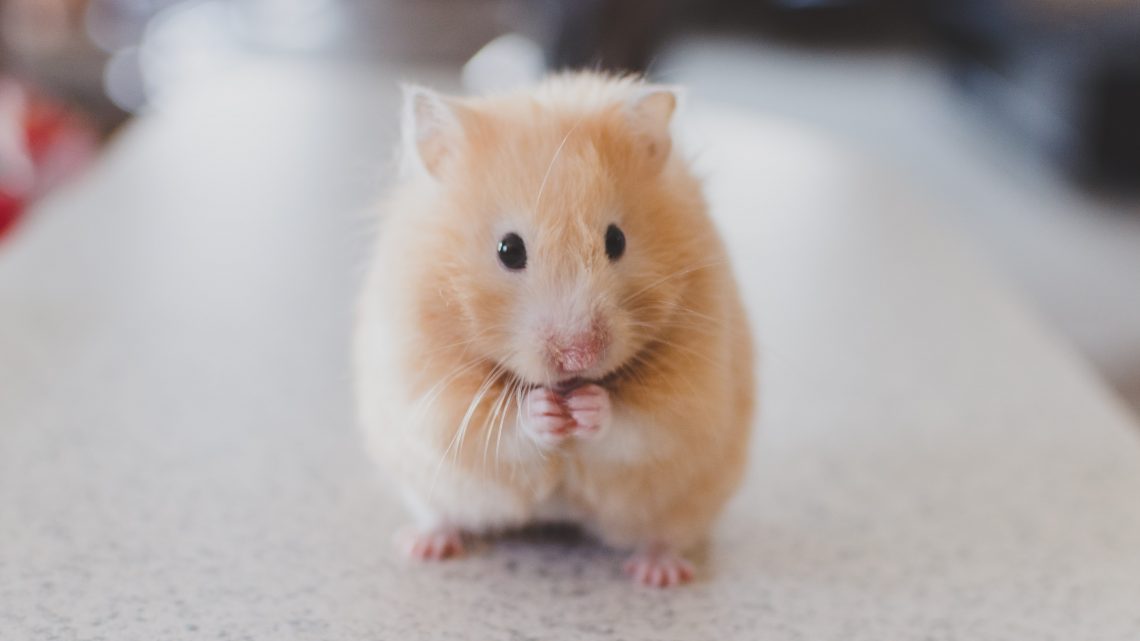
Hamsters
From comfy bedding to perfectly tailored food, you’ll find everything you need for your hamster in this section. We’ve even got hamster books and DVDs so you can find out more about your furry friend, and hamster hygiene products so you can ensure they stay happy and healthy.
Owning a hamster
With their cute little faces, twitching whiskers and cheek pouches full of food, hamsters are adorable pets. In fact, they’re the most popular small rodent you can welcome into your home. They usually live for around two years and make a great first pet for your kids.

There are lots of different species of hamster, but you’re likely to choose between a golden or dwarf one as your new pet. Golden, or Syrian hamsters, are bigger and you need to keep them alone as adults, that way they won’t get into fights. Dwarf hamsters like the Russian dwarf can be kept in single sex groups, but not mixed.
There’s so much fun stuff to look forward to when you’re getting a hamster. From setting up a little house for them to sleep in, to choosing a cage with lots of levels and little tunnels to explore, and getting a ball that they can even run around the house in.
Caring for your hamster
You need to make sure you know all the important things too, including what your hamster needs to eat to stay healthy. They love to exercise, so you will need a wheel for your pet hamster to run in, and plenty of material for burrowing. As with any small animal, bigger is better when it comes to their cage, allowing your hamster the space to play and climb as well as exercise.

All Products

Ideal diet for your hamster
Your hamster relies on you to give them everything they need to stay happy and healthy. While hamsters are often thought to be quite uncomplicated when it comes to care, they still need a specialist diet gives them all the vitamins, minerals and nutrients they require. That’s why it’s so important to do your research into hamster nutrition to find the best diet to meet your pet’s needs. To help get you started, we’ve put together a handy guide to feeding your hamster below.
What do hamsters eat in the wild?
While hamsters make popular domestic pets, they have their origins in dry, warm habitats. The Syrian hamster was first discovered in Syria, and several other species of hamster are found in Europe and Asia.
In their natural environment, hamsters tend to eat seeds, nuts, grains, fruits and vegetables. Some hamsters also eat insects and other animal material (such as carrion). That means that they’re classed as omnivorous, so need both meat and plant-based food in their diets.
What does your hamster need to eat at home?
At home, it is important to give your hamster food that mimics their diet in the wild. While that doesn’t mean you need to give your pet carrion for their dinner, it does mean that you should look for a complete and balanced food that has all the nutrients they need to stay healthy. This could include:
- A specialist hamster food: Many brands have developed balanced hamster food that contain all the nutrients your hamster needs.

- A mixture of nuts, seeds and grains: As hamsters often eat grains, seeds and nuts in the wild, choosing a food that contains these could also be a great way of giving your hamster the nutrients they need (and they’re likely to enjoy it too!). Alternatively, the Nature’s Feast Hamster Food has a healthy blend of seeds, fruits and vegetables that your hamster is sure to love. Remember that these mueslis often include nuggets, which means you shouldn’t need to feed extra nuggets or foods alongside them
- Fresh fruit and vegetables: Your hamster will likely enjoy eating fresh fruit and vegetables from time to time. Adding these into your hamster’s diet will give variety, as well as additional vitamins and nutrients at mealtimes. For example, apples, leafy greens and root vegetables are good choices. Just remember to give these occasionally and in small amounts. Too many too often could cause stomach upsets

Don’t forget to always make fresh, clean water available to your hamster. The best way to do this is usually through a bottle and a sipping tube. Remember that hamsters don’t have great suction, so a bottle with a valve-less tube is usually a good idea.
Is there anything your hamster shouldn’t eat?
Generally, hamsters will be happy and healthy if given a complete and balanced diet, as suggested above. However, there are some things that hamsters shouldn’t eat. Some of these can be poisonous for your hamster and others could cause weight problems.
Sugar: Too many sugary treats (like fruit) or treats that contain a lot of sugar can cause problems for your hamster. Try to avoid giving too much to your pet and always avoid giving your hamster sugary treats meant for humans (like chocolate or sweets)
Grapes: Grapes can be poisonous to hamsters, so always avoid giving these to them
Rhubarb: Like grapes, rhubarb is poisonous to hamsters and could cause them serious harm
![[object Object]](https://i1.adis.ws/i/petsathome/close_up_of_white_hamster.jpg?qlt=50&w=400)
Wet or powdered food only: Hamsters need texture in their diets, as this helps to keep their teeth healthy. If you need to give wet or powdered food on advice from your vet, be sure to remove this once eaten, as it can degenerate quickly (especially as hamsters like to hoard their food)






